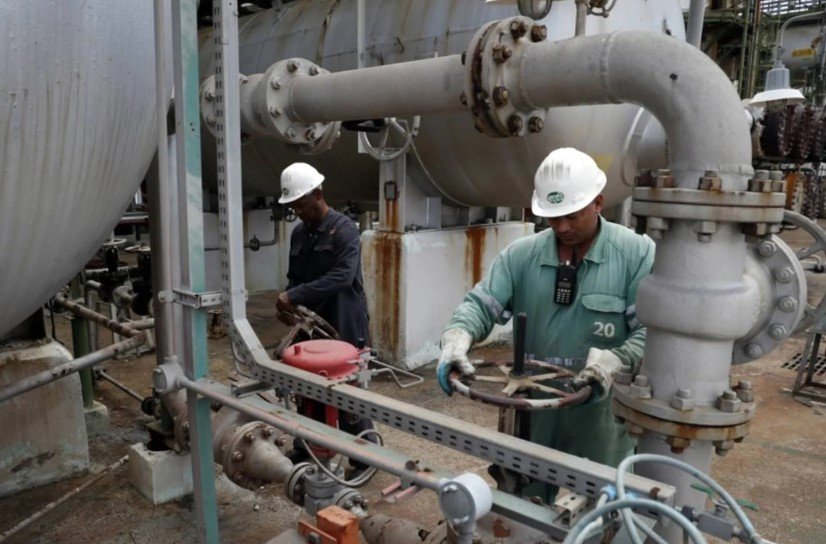President Donald Trump has unveiled a new 25% “secondary” tariff on any nation purchasing oil or gas from Venezuela — a bold escalation aimed at choking off revenue to the government of Nicolás Maduro. The move, announced Monday, risks shaking up the global energy market while deepening tensions with major buyers like China.
A Tariff Designed to Choke Maduro’s Cash Flow
Trump’s latest tariff targets one of Venezuela’s most vital lifelines: oil exports. By slapping a hefty 25% duty on countries buying Venezuelan crude, the White House aims to cut a major stream of income for Maduro’s embattled regime.
The Venezuelan economy is heavily reliant on its oil sector, which accounts for roughly 90% of the country’s export revenue. This new tariff could hit hard, especially for countries like China and India — two of Caracas’s biggest customers.
For China, this is yet another blow. Already facing a 20% tariff under Trump’s wider trade policies, Beijing now finds itself paying even more if it continues importing Venezuelan oil.

Maduro’s government, meanwhile, condemned the announcement, calling it an “economic assault.” Venezuelan officials insist they will find alternative markets, though options remain slim.
April 2: The Date That Could Shake Oil Markets
The tariff is set to kick in on April 2 — the same day Trump’s administration is expected to unveil a wider range of tariffs hitting multiple nations. In his social media post, Trump dramatically declared April 2 as “Liberation Day in America.”
This synchronized rollout hints at a broader strategy, likely aimed at showcasing strength in the run-up to the 2026 midterm elections. It also signals to global markets that the U.S. is doubling down on its aggressive trade stance.
Oil traders responded swiftly. U.S. crude futures climbed to a three-week intraday high, rising 1.3% to $69.17 per barrel in New York trading. Venezuelan sovereign bonds, on the other hand, slumped.
What Exactly Is a ‘Secondary’ Tariff?
Trump referred to the measure as a “secondary tariff,” borrowing language from sanctions playbooks. Secondary sanctions typically target third parties — companies or countries — that do business with a sanctioned entity.
The concept is rare in the trade arena. Traditional tariffs are applied directly to goods from a specific country, but secondary tariffs expand the pain to anyone who dares to buy from the targeted nation.
For example:
- A Chinese refinery buying Venezuelan crude would face a 25% duty on unrelated U.S.-China trade.
- European companies importing Venezuelan gas might see tariffs slapped on their other American exports.
This approach mirrors the “maximum pressure” campaigns the U.S. has used against Iran and North Korea — though those cases involved financial sanctions more than trade penalties.
Winners, Losers, and the Global Fallout
The winners? Potentially U.S. oil producers, who could see less competition if Venezuelan exports dry up. Gulf Coast refineries, long reliant on Venezuelan heavy crude, might pivot to domestic sources or other suppliers like Canada and Mexico.
The losers list, however, could be longer:
- China: Already grappling with U.S. tariffs, Beijing now faces a tough choice — keep buying Venezuelan oil and absorb the extra costs, or seek alternative sources.
- India: A key Venezuelan customer, India might feel the pinch as well. New Delhi has kept a cautious balance between U.S. and Venezuelan interests, but this tariff complicates that stance.
- Global Energy Prices: Less Venezuelan oil on the market could tighten global supply, driving prices up. While this benefits U.S. producers, it may weigh on consumers facing higher gas prices.
| Winners | Losers |
|---|---|
| U.S. oil producers | China |
| Canadian exporters | India |
| Gulf Coast refiners | Venezuelan economy |
What’s Next? Uncertainty Looms
The big question: Will other nations comply or push back? China, for one, has shown it’s not afraid to retaliate against U.S. tariffs.
There’s also the matter of enforcement. Trump vowed that “all documentation will be signed and registered” — but how the administration ensures global compliance remains to be seen.
For now, markets are jittery. Diplomats are watching. And Venezuela’s future looks even more uncertain.
